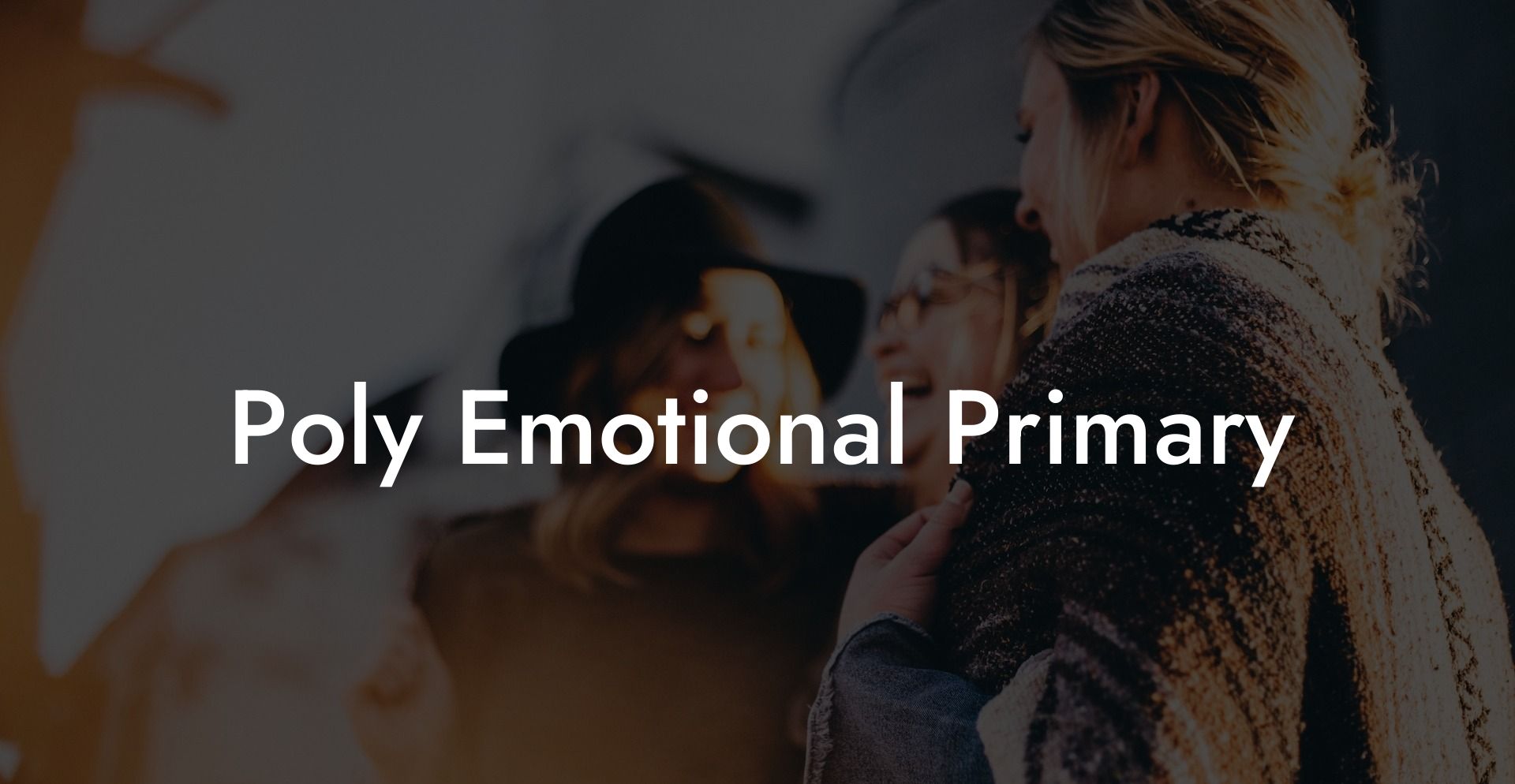Are you intrigued by the concept of polyamory and the idea of emotional primary partners within these relationships? In the world of non-monogamy, the term "emotional primary" plays a significant role. Let us delve into the meaning of this term and how it shapes the dynamics of polyamorous relationships.
Poly Emotional Primary Table of Contents
What is an Emotional Primary?
An emotional primary is a term used within polyamorous relationships to describe the partner with whom one shares the strongest emotional connection. This partner often takes on the most significant role in terms of emotional support, decision-making, and life planning. However, it's essential to understand that emotional primary designation doesn't minimize other relationships within the polyamorous network.
Why is Emotional Primary Important in Polyamory?
In a polyamorous relationship, identifying an emotional primary can provide a sense of stability and anchor point for the individual. Some reasons why establishing an emotional primary can be essential include:
- Security and stability: Knowing that you have a core partner with whom you share your deepest emotional connection can create a reliable foundation to explore other relationships.
- Decision-making: Having an emotional primary can make decision-making processes easier within the context of shared goals and life plans.
- Avoiding jealousy: Acknowledging and respecting the emotional primary bond can help alleviate feelings of jealousy and insecurity within the polyamorous network.
Does Every Polyamorous Relationship Have an Emotional Primary?
No, every polyamorous relationship doesn't necessarily have an emotional primary. Relationship structures in the world of non-monogamy are diverse and complex. Some follow a hierarchical structure, where certain relationships hold priority while others don't. In this scenario, the emotional primary would be more prevalent.
However, other polyamorous relationships might practice relationship anarchy or egalitarian polyamory, wherein each relationship is considered equal, and determining one primary partner can be considered restrictive.
Establishing Emotional Primary: Communication is Key
The critical factor in determining and maintaining an emotional primary is open and honest communication. Ensuring that all parties involved understand their roles and expectations is vital to prevent issues from arising. Some tips for effective communication include:
- Discussing your needs and expectations openly with your partners
- Offering a safe space for your partners to share their feelings and concerns
- Regularly checking in on each other's emotional well-being
- Establishing boundaries and sticking to them
Challenges and Potential pitfalls
Like any relationship, polyamorous relationships with emotional primaries can come with their challenges, such as:
- Managing expectations: Balancing the needs and wishes of multiple partners can be tricky and requires constant communication and negotiation.
- Jealousy and insecurity: Despite having an emotional primary, feelings of jealousy and insecurity can still surface, demanding empathy and understanding from all parties involved.
- Time management: Juggling multiple relationships can be time-consuming, and finding a balance to give each partner the attention they deserve can be challenging.
Poly Emotional Primary Example:
Nancy and Joe are in a committed polyamorous relationship. They consider each other as their emotional primary because they share a strong emotional bond that surpasses their connections with other partners. They often turn to each other for emotional support and make joint decisions about their shared life. Meanwhile, they continue to maintain and nurture other relationships within their poly network. Open communication, understanding and empathy are integral factors in their relationship, allowing them to maintain healthy connections with their emotional primary and secondary partners.
Understanding and embracing the concept of an emotional primary can bring clarity and stability to polyamorous relationships. Nevertheless, always remember that open communication, empathy, and understanding are crucial to maintaining balanced and healthy relationships.
If you found this article insightful or have more questions about polyamory, don't hesitate to share it with others and explore more guides on The Monogamy Experiment. Our content aims to provide comprehensive knowledge on non-monogamy and other relationship models.













